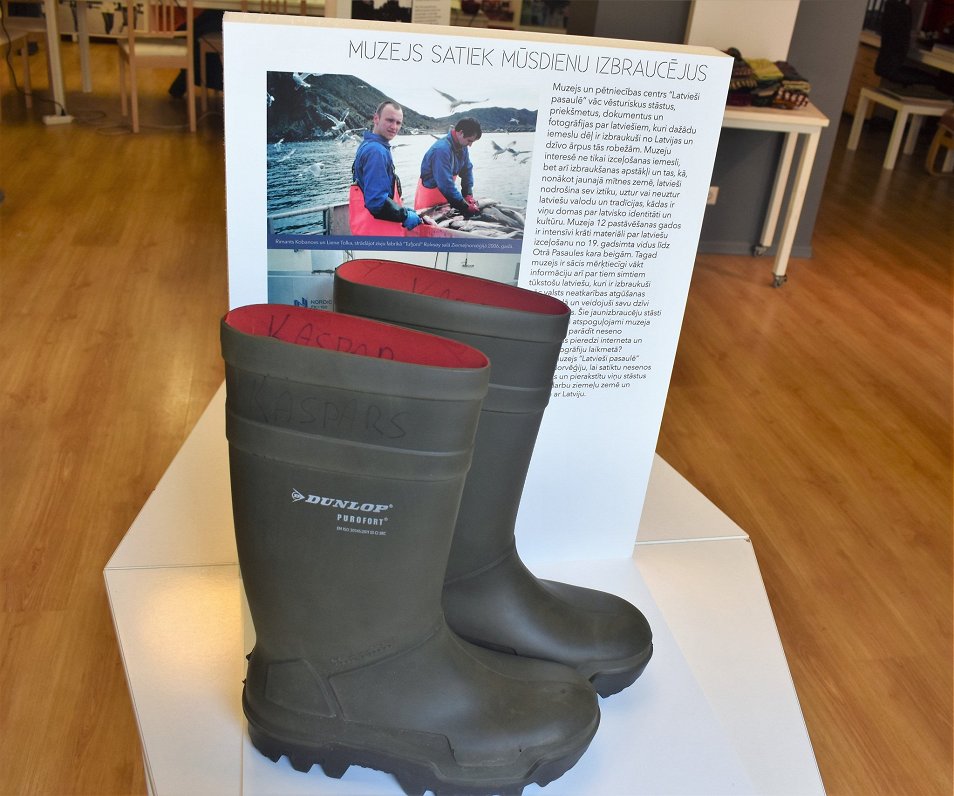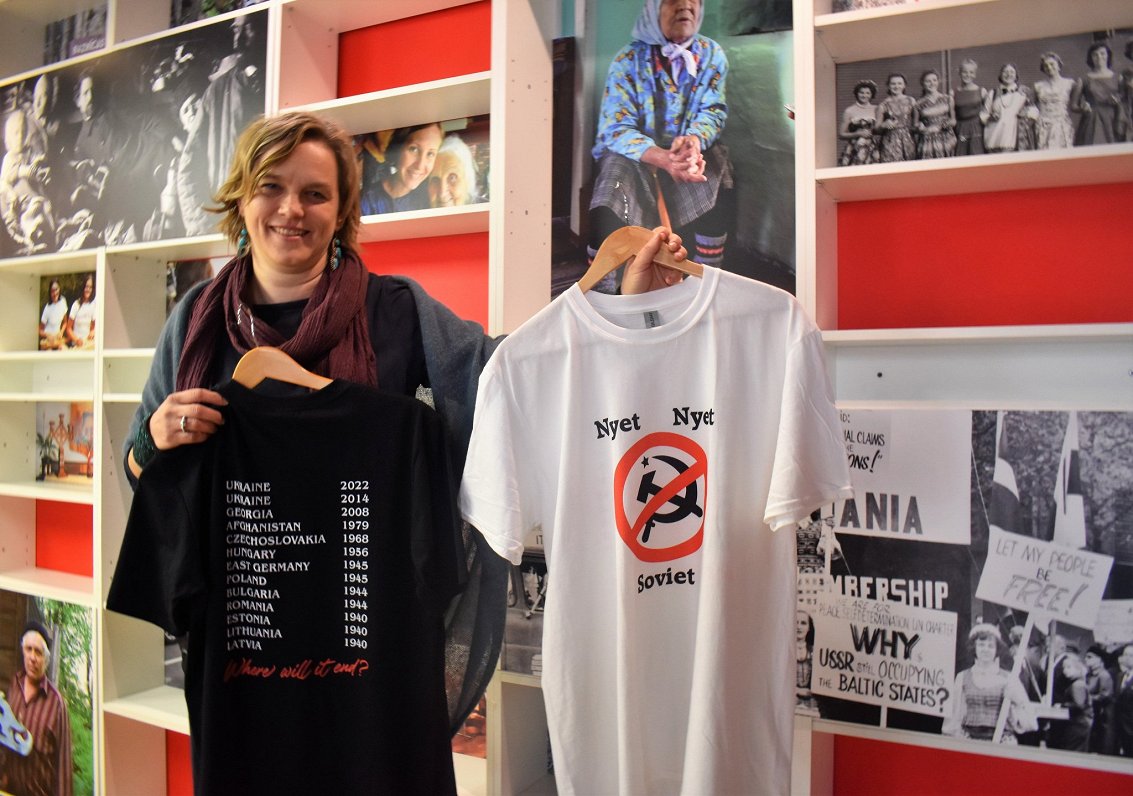Marianna Auliciema grew up in Brisbane, Australia, but 20 years ago she returned to the land her parents had fled from at the end of the Second World War. And she decided to explore the links between these two homelands by co-founding the Latvians Abroad Museum and Research Centre in 2007.

Marianna is a professional museologist, and is today the head of the museum. It is a role rooted in her own family history.
“When I began living in Latvia, at first I thought, “I’m here now, and I don’t want to talk about the diaspora culture”,” admits Marianna. “But these are my parents’ and grandparents’ stories, and with an insider perspective I know what it is like to live outside of Latvia. It gives me a special way to understand people’s life stories.”
Over 15 years, the museum has amassed a collection of 20,000 items relating to Latvians scattered around the world. While the main focus has been on the generation which went into exile to escape Soviet rule, the institution also explores Latvian Baptists who went to Brazil in the early 20th century and farmers who journeyed to Siberia to till virgin lands in the 1800s.
Latvians who have left in recent decades aren’t forgotten either, as evidenced by a pair of rubber boots gifted by a man working in Norway as a fisherman. According to Marianna, what really matters are the stories behind the objects.
“You can rattle of statistics about how 180,000 people left Latvia during the war and so on, but when you tell the individual’s story, how they got on the ship, how they watched bombs falling, the listener gains a better understanding of what they went through,” she says.
Several years ago, the museum published a book about anti-Soviet protests around the world. Beginning in refugee camps in western Germany in the late 1940s, they reached a crescendo in the 1980s, as a generation of Latvians born in the West staged creative stunts to draw attention to the plight of the Baltic nations.
The zeitgeist was summed up on a catchy t-shirt designed by American Latvian Pēteris Elferts. On the front, it bore the slogan “Nyet, Nyet Soviet” and a crossed-out hammer and sickle symbol. On the back, like a rock band tour schedule, was a list of the countries invaded by the USSR over the decades. The piece of apparel has since been reissued with an updated list of victims of Russian military aggression.
New Jersey resident Juris Bļodnieks took the cause on the road by decorating his car with slogans for independence. His story is told in a documentary released in 2021 by the museum titled, “Valiant! A Trip to a Free Latvia.” It can be viewed for free within Latvia at the portal filmas.lv.
The legendary vehicle will be one of the star exhibits at an exhibition devoted to the anti-Soviet protest movement opening on May 4 at Riga’s Railway Museum. The show had originally been scheduled to run two years ago but was postponed due to the Covid crisis.
While the museum looks forward to the day when it will have a permanent home, it recently opened a display space in the Berga Bazārs arcade in central Riga. Most of its collection is housed in the National Library of Latvia, while the Riga Motor Museum looks after Bļodnieks’ Valiant.
Marianna recalls wearing a “Nyet, Nyet Soviet” shirt at pro-independence demonstrations and Latvian youth camps in Australia. And the spirit of the movement has guided her in making big life decisions.
“I remember this grim determination that Latvia would be free one day, and we would go home,” she says. “Latvians in Latvia were not allowed to speak their own language, so it was up to us to preserve the language and the culture. Because it is very important for me that my children speak Latvian, and the easiest way to ensure this is living in Latvia.”
































